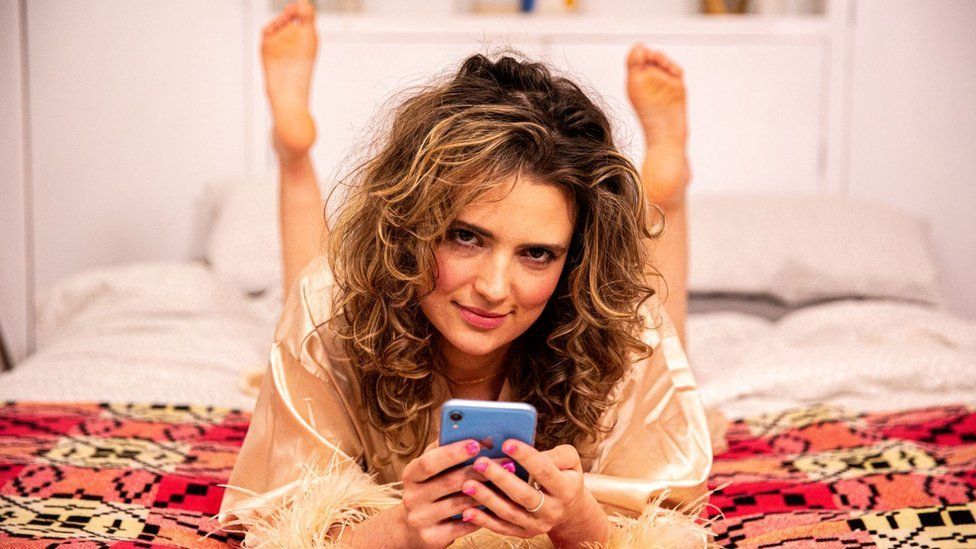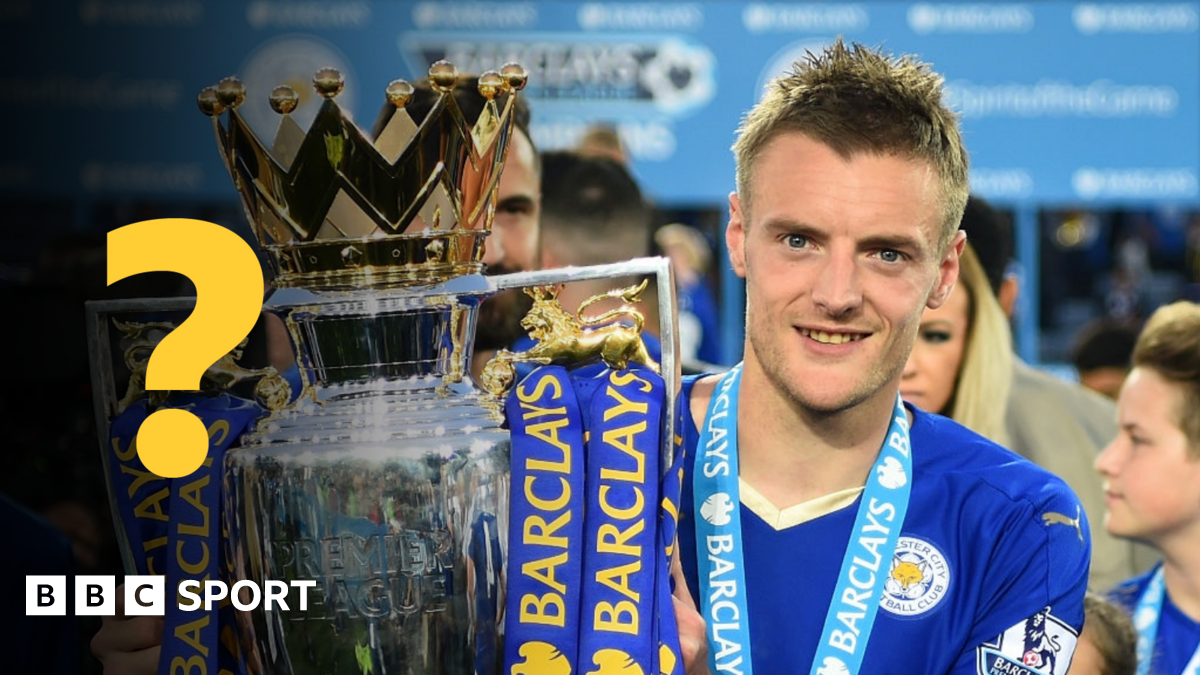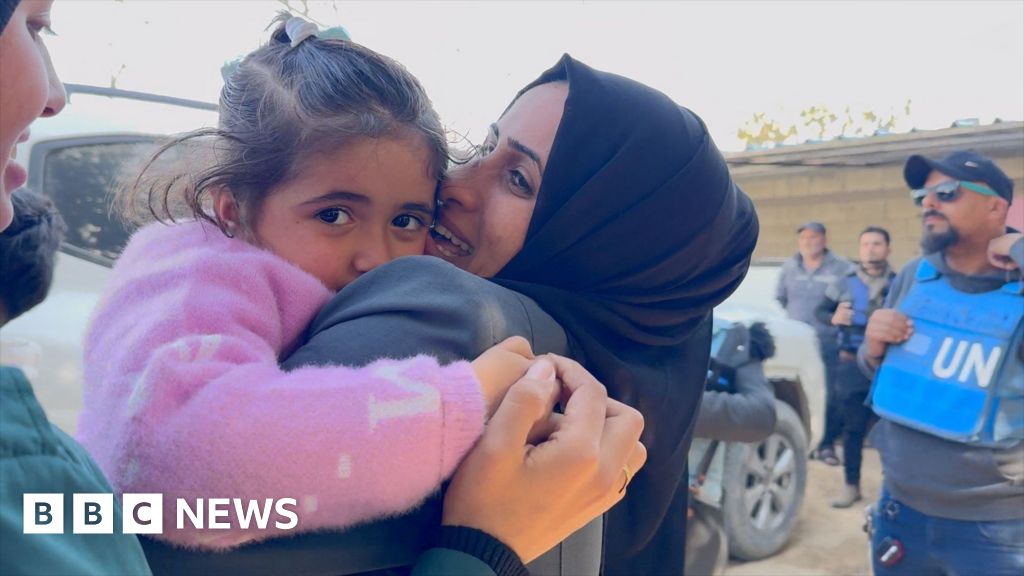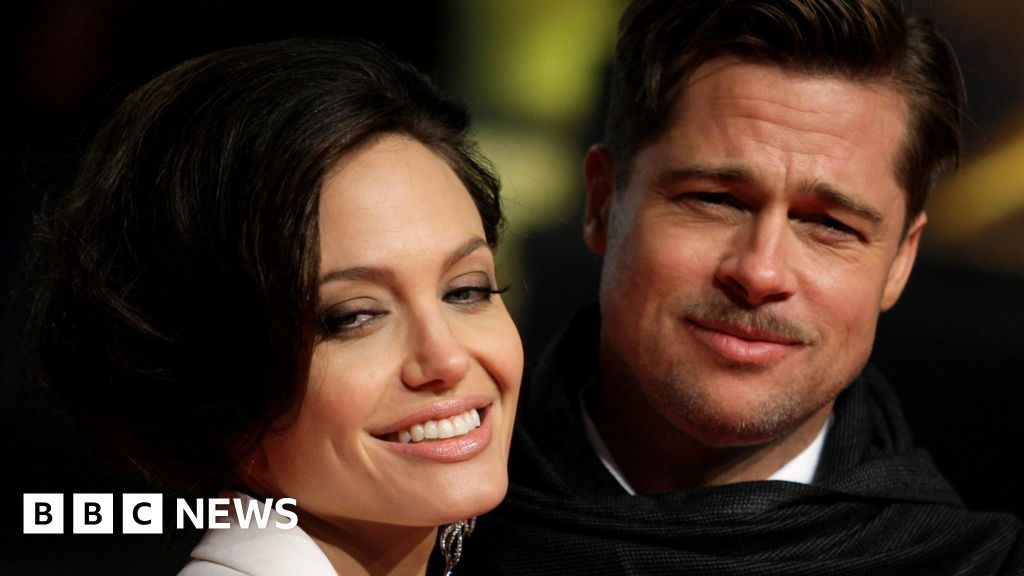 Image source, BBC / Boom Cymru
Image source, BBC / Boom Cymru
How This Blind Girl episodes include "...Gets Laid"
Have you ever wondered what challenges a blind person might face in their sex life? Or how they go about meeting a partner in the first place?
Actress Mared Jarman wants to tell you, all to bust myths and break taboos, about disabled people and sex.
"People don't want to think of disabled people as sexual beings with sexual desires, wants and needs," said Mared, who has a degenerative eye disease.
"The reality is that disabled people are just as sexual as anyone else."
Mared was diagnosed with Stargardt disease when she was 10 and lost about 80% of her eyesight in her right eye within a week when she was 14.
Today she is almost blind in her right eye and has more vision her left but it has deteriorated.
Sick of disabled characters being depicted either as sexless or fetishised, she wrote BBC comedy drama How This Blind Girl.
The series sees blind 20-something Ceri, played by Mared, navigate the already fraught world of dating.
Earlier this month her efforts saw her handed a BAFTA Cymru Breakthrough award.
Image source, BBC / Boom Cymru
Image caption,Mared wrote and stars in How This Blind Girl
"Disability and sex is a bit of a taboo subject," said Mared.
"It's just ridiculous to think that we don't have the same instincts and drive as anybody else."
She said all too often misconceptions were made about disabled characters.
"When I go up for roles that are 'sighted' a huge percentage of them have nude scenes and are sexual, the girl is flirtatious, there's a sex scene... but I can't remember a single disabled role I've gone up for where there's a nude scene, a kissing scene, a sex scene, anything," she said.
"[There's an assumption of] 'that person won't want to have sex so we don't have to worry around about that' and then on the other side there's the complete fetishisation of disabled people from devotees and devotism to very, very extreme.
"They're both huge problems because either they desexualise us or completely sexualise and fetishise us. There's just no in between [which is the] reality."
Mared said as a disabled person opportunities had been "few and far between".
Image source, BBC / Boom Cymru
Image caption,Mared decided to write after becoming frustrated with roles for disabled actresses
"As an actor it's rare that disabled roles come my way and when they do they are often very specific as to what they want to portray as a disabled person."
Mared - who grew up in Cardiff with her father musician Geraint Jarman and mother actress Nia Caron - decided on a change of tack, began writing and immediately found it cathartic.
"It can be soul destroying constantly waiting for someone else to validate you and your worth is, it can have such a negative effect on you," she said.
"I didn't filter myself.... I want to be unapologetically a version of a disabled person that I think so many of us in the modern world are."
From kissing the wrong person to accidentally joining a table of strangers in a pub, how much of what happens to her character Ceri is autobiographical?
"It isn't solely my experience... it's of course dramatised but it is the reality of being a young, disabled person trying to navigate a mainstream life," she said.
Image source, BBC / Boom Cymru
Image caption,How This Blind Girl sees character Ceri navigate the tricky world of dating as a blind woman
No, she has not kissed the wrong person, but, she has taken a seat at the wrong table when on a date.
"It was hilarious, it was humiliating, but it's far better to go 'OK, I'll remember that, and I'll use it, and I will win in the end'," she said.
Like her character Ceri, in the past Mared's instincts have been to attempt to conceal her disability
"It dominated my experiences with people. I didn't actually enjoy the dating part, it just became solely about this act... but it's amazing what you can get away with, especially if people are drinking," she said.
For many people with a disability, "masking" can become a big part of life, said Mared.
"Not just in dating, but in in day-to-day survival - passing as 'able' is a huge part of my survival just because I live in a city and disability hate crime is far more common than we think it is."
Mared's recent Bafta Cymru win was a big moment, not just for her career but also in terms of her journey of accepting and embracing her disability.
Accepting the award, she said: "For every little blind girl, blind boy, disabled person who has been told that they can't do anything and have a quality of life, this is for us because that's wrong'."
Reflecting on that moment, she said: "I'd reached a moment in my life that I never, ever, ever thought would be possible because of how society and other people had made me feel and unfortunately I'd started to believe myself."
Claiming her identity as a disabled person has been and is still an ongoing journey, she said.
Image source, BBC / Boom Cymru
Image caption,Mared wants her industry to change the way it deals with disability
"I used to find it very difficult just to utter the words 'I am blind' to another person - it's still a daily challenge but I don't find it as difficult anymore," she said.
"You don't just get a badge [that says] 'I now have disabled pride for the rest of my life' - it's a journey, it's a process, it comes and it goes."
She described her disability as "a two-sided beast".
"Being blind is a part of who I am and yes it's exhausting, yes it's tiring and scary, but it's also wonderful.
"It has taught me things about people and about the world and has given me opportunities that I wouldn't otherwise have."
She wants to see change in her industry and thinks open casting for roles (auditions where you don't need an invitation) would be a great place to start.
"It doesn't have to affect the storyline, disabled people are a part of our lives, we make up a huge percentage of the population," she said.
"We need to stop ignoring that disability is just a part of life."
 (1).png)
 1 year ago
25
1 year ago
25













